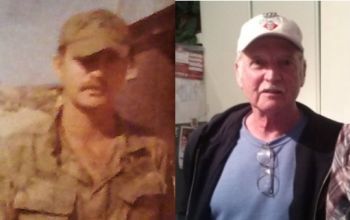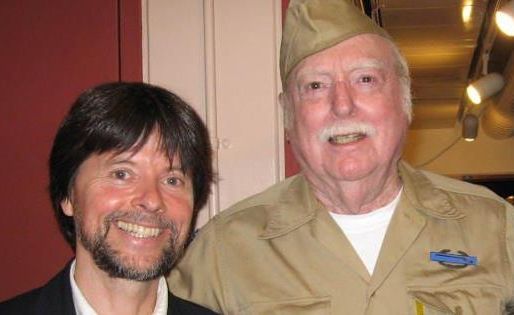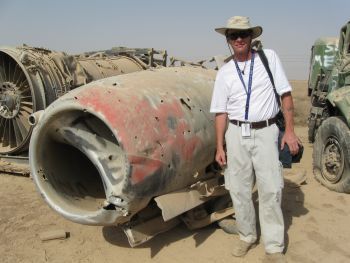Friday, January 10, 2014. Chaos and violence continue, Nouri's assault on Anbar continues, rumors of a secret deal surface, Nouri gets more rewards from the White House, Dan Murphy embarrasses himself (again), and more.
One of the points of Nouri's assault on Anbar was to end the ongoing protests in Iraq -- protests against his government -- protests which have lasted over a year.
How'd that work out for al-Maliki?
That's Samarra.
You may remember Samarra especially
due to AP falsely reporting December 30th that the protests had withered away in Samara. False then, false today.
Brave Iraqis also turned out in
Ramadi and
Jalawla.
And fearful, scared Nouri resorted to collective punishment again today. Iraqi Spring MC reports
Nouri al-Maliki's air force bombed residential areas in Ramadi today,
denied humanitarian aid to Falluja,
killed a child named Taha Ayoub Aelchortani and left two more injured with his bombings,
bombed homes in Falluja,
Ramadi's hospital has received 200 dead or wounded from Nouri's bombings and
Falluja has received 150 dead or wounded.
Omar al-Jaffal (Al-Monitor) reports:
Meanwhile, the head of the tribal council in Anbar, Abdul Rahman al-Zobaie from Ramadi, told Al-Monitor, “The army ought to stop the indiscriminate shelling of
civilian houses.” He noted, “This has killed and injured hundreds of
civilians and destroyed a large number of houses. The government of
Anbar ought to expedite measures to meet the needs of the affected
families.”
Zobaie said, “Local police forces are deployed at the entrance of the
city, and checkpoints have been established in all areas in Fallujah,
[and are] working on protecting the governmental institutions with the
support of the tribes. There are no members affiliated with the Islamic State of Iraq and al-Sham [ISIS] as propagated by some politicians and the government of Anbar.”
He added, “The government of Fallujah, with all its tribal sheikhs
and dignitaries, are demanding that the central government and the armed
forces stop the indiscriminate shelling of residential areas and
withdraw the armed forces, as the [local] police are the only party
responsible for managing the crisis.”
AFP notes, "The United Nations and NGOs have said that civilians lack access to
essential supplies such as food and fuel as a result of a government
blockade, while Human Rights Watch has condemned rights abuses by all
sides during the crisis." And there's still little clarity for the western press regarding who's in Falluja with guns.
Isabel Coles (Reuters) reports, "Iraqis fleeing
from Falluja question whether the masked gunmen who overran their city
10 days ago are really al Qaeda-linked militants as the government says,
but fear their presence will draw a ferocious response from the army
regardless."
Mushreq Abbas (Al-Monitor) explains:
Neutral sources in the city confirmed to Al-Monitor that four armed groups are deployed inside the city and on its outskirts:
- Tribal gunmen: This group of fighters is led by
former army officers belonging to the main Dulaim tribes — among them
the al-Bou Nimr, al-Farraj, al-Bou Issa and al-Fallaha — besides gunmen
from the al-Jamilat, al-Jabour and al-Janabat clans. They have been
organizing under the banner of the Tribal Revolutionaries. It is
believed that Sheikh Ali al-Hatem al-Salman is personally leading them.
Their political and religious reference is the Tribal Revolutionaries’
Council, which is likely led by the Salafist cleric Abu Abdullah
al-Janabi.
- Assorted armed groups: These had fought against US
forces and later either disbanded, reduced their activity or joined the
Sahwa or Iraqi security forces. They include Hamas-Iraq, Kataeb
al-Thawrat al-Ishrin, Jamaat al-Naqshbandi, Jaish al-Mujahidin and
Baathist outfits. These groups have Brotherhood and Salafist leaders
inside and outside Iraq and coordinate with the Anbar Revolutionaries’
Council.
- Salafi jihadist organizations: These groups follow
al-Qaeda but are not part of ISIS, having split from it after its
leader, Abu Bakr al-Baghdadi, rebelled against the global al-Qaeda
leader Ayman al-Zawahri. The most prominent of these groups is Jaish
Ansar al-Sunna.
- ISIS: Part of the ISIS contingent came to Fallujah
from Ramadi, as noted above, after battles there against Sahwa forces.
From there, they journeyed to Fallujah and were joined by local ISIS
members as well as fighters from Abu Ghraib and other Baghdad environs.
The picture on the ground is made complex by overlapping forces. No
one can say for sure whether there is coordination among these various
groups. The most credible information indicates that the Tribal
Revolutionaries is the largest, with thousands of fighters affiliated
with tribal leaders and clerics, and is native to Fallujah. Meanwhile,
outside Fallujah, besides Iraqi Army forces stationed east and north of
the city, government Swat police forces have been deployed south and
west of it connected to Ramadi. Tribal Sahwa forces are present in the
areas of the Swat and army contingents, but are less influential in
Fallujah compared to in other cities in Anbar.
Mustafa Habib (Niqash) reports rumors of secret developments:
A secret deal was done between the tribes of Anbar
and Sunni Muslim extremists this week – the result has seen extremists
withdraw from Fallujah. But questions remain: Will PM Nouri al-Maliki
still react with military force? How did Al Qaeda manage to take over a
city like Fallujah in just two days? And why did they react so
diplomatically when asked to leave?
Sources from within the tribes in the city of Fallujah in Anbar province
say that on Tuesday evening, a secret deal was done by the tribes of
Anbar and members of the extremist group, the Islamic State of Iraq and
Syria. Sources told NIQASH that the extremist group, also known as ISIS
or Daash, said they would withdraw from the city so that the Iraqi army
did not invade.
For several days now Iraqi Prime Minister Nouri al-Maliki
has been threatening to send his troops into Fallujah to re-take the
city; as Iraqi army troops massed on the outskirts of the city he even
put out a call to locals to expel the extremist elements themselves - or
face an attack by the Iraqi military.
The deal, done in the central city, was reached in order
to prevent any further damage to the city. The city is mostly home to
members of Sunni Muslim tribes who tend to be conservative when it comes
to religion and to tribal customs. And despite their antipathy toward
al-Maliki’s government –a Shiite Muslim-led coalition that Sunni Muslims
say has alternately sidelined and targeted them – locals apparently do
not want to see a repeat of 2004, when the US army stormed the city
after the gruesome deaths of four contractors there.
Although it is unusual for ISIS to react in what may best be described as a diplomatic way, they apparently ad good reason.
“Only several dozen Daash fighters actually entered the
city in the first place,” says Ahmad al-Jumaili, one of the tribal
leaders in Anbar. “They were only carrying light and medium sized
weapons with them. And there is no way they could control a city like
Fallujah where all the people of the city have at least one weapon in
their homes.”
AFP's Prashant Rao Tweeted the following today:
At the Guardian and
at BRussells Tribunal,
Ross Caputi explains:
This week, the Iraqi Ministry of Interior's assertion that al-Qaida's affiliate, the Islamic State of Iraq and Syria, has taken over half of Falluja
is being parroted in headlines by almost every major media network. But
again, it appears that the role of al-Qaida in Falluja is being
exaggerated and used as a justification for a military assault on the
city.
The violence began just over a week ago, when Iraqi security forces disbursed a protest camp in Falluja and arrested a politician who had been friendly to the protestors' goals. This camp was part of a non-violent protest movement
– which took place mostly in Sunni cities, but was also receiving some
support from the Shia community – that began a year ago. Iraqi security
forces have attacked protestors in Falluja and other Sunni cities on
several occasions, the most egregious example taking place in Hawija,
when over 50 protestors were killed.
While some deal with reality, some struggle with themselves.
In the church they light the candles
And the wax rolls down like tears
There's the hope and the hopelessness
I've witnessed thirty years
-- "Hejira," written by
Joni Mitchell, first appears on her album Hejira
Case in point, Dan Murphy. Light those candles, Danny, cause the tears they are a coming.
Today, the
Christian Science Monitor reporter Tweeted.
Well that's good, Dan, it's good to know you were objective or tried to be and -- Oh, he wasn't done Tweeting.
Both Tweets take you to the same article by Dan, "
The myth of Iraq's squandered stability." I'm sorry is this a defense of Obama -- something Dan's already written many times over -- or a look at partisan finger pointing?
Well it is a defense of Barack written by a devote schoolboy -- it's a bunch of crap.
He should be ashamed of himself, he's immature brat. He's such a little brat and he can't even get his figures right. He builds his article around 2008 and Petraeus. That's when, according to Dan, everything went wrong. Apparently, Iraq's been on a very slow simmer, with a tilted lid, for the last years and it only now boiled over.
Dan took one for Barack today. He's really hoping this did the trick and Barack will ask him to senior prom because Dan's got his eye on a purple formal.
Like I always say, if you're going to be a bitch, don't be a dumb one. Poor dumb bitch Dan also Tweets:
He's such a stupid idiot and fate has a way of ensuring the stupid look really stupid.
If Dan's weighing in on Iraq today, who would be the counterweight? That's right Ned Parker, an actual journalist.
At the
Los Angeles Times, Ned repeatedly broke stories of Nouri's human rights abuses and secret prisons. The
Christian Science Monitor still can't write about that, not even in retrospect.
"
Who Lost Iraq?" is the title of Ned Parker's Politico essay. Remember Dan Murphy's first Tweet? Pretending he was going to step out of partisanship? Ned Parker actually does that and refuses to play cheerleader for either the Democrats or the Republicans.
Here's three early paragraph of the articles, Dan Murphy can study and hopefully learn from them:
It was the April 2010 national election and its
tortured aftermath that sewed the seeds of today’s crisis in Iraq.
Beforehand, U.S. state and military officials had prepared for any
scenario, including the possibility that Maliki might refuse to leave
office for another Shiite Islamist candidate. No one imagined that the
secular Iraqiya list, backed by Sunni Arabs, would win the largest
number of seats in parliament. Suddenly the Sunnis’ candidate, secular
Shiite Ayad Allawi, was poised to be prime minister. But Maliki refused
and dug in.
And it is here where America found its standing wounded. Anxious about
midterm elections in November and worried about the status of U.S.
forces slated to be drawn down to 50,000 by August, the
White House decided to pick winners. According to multiple officials in
Baghdad at time, Vice President Joseph Biden and then-Ambassador Chris
Hill decided in July 2010 to support Maliki for prime minister, but
Maliki had to bring the Sunnis and Allawi onboard. Hill and his staff
then made America’s support for Maliki clear in meetings with Iraqi
political figures.
The stalemate would drag on for months, and in the end both the United
States and its arch-foe Iran proved would take credit for forming the
government. But Washington would be damaged in the process. It would be
forever linked with endorsing Maliki. One U.S. Embassy official I spoke
with just months before the government was formed privately expressed
regret at how the Americans had played kingmaker.
With the exception of naming Joe, you can find that over and over here in the last years.
We've covered it, we've covered The Erbil Agreement. Dan Murphy can't find either with his one free hand.
He also can't find the failure that is Chris Hill. Chris Hill was not qualified to be the US Ambassador to Iraq and he did more to screw than anyone. Thing is though? That was obvious at his confirmation hearing and we noted it then. He had no understanding of Iraq. He was a joke. And he only got worse once he was confirmed. He was so bad he barely lasted a year and, for the record, when a president nominates someone to be an ambassador, they're not assuming they're going to have to keep coming back -- over and over -- in the same term to nominate others for the same position.
Hill was a failure.
You can be an idiot like Dan Murphy or you can start looking at what took place.
The US government installed Nouri as prime minister under Bully Boy Bush (2006) and they demanded under Barack (2010) that the despot get a second term.
That's too complicated for Dan Murphy so he goes to 2008 -- the last year Bully Boy Bush occupied the White House, pretend not to notice -- and tries to pretend like that's what led up to everything.
No, this is about democracy, this is about elections, this is about circumventing a Constitution.
In fact, this is about Dan Damn Murphy.
I have no problem calling out Bully Boy Bush and the archives make quite clear that, when he occupied the White House, I called him out over and over and over. Barack Obama has been President of the United States since January 2009. I don't have a problem calling him out.
Dan Murphy does which is why he goes to 2008 to explain today's failures (when Bully Boy Bush occupied the White House) and acts as though the last five years don't make a difference.
And it's that same blindness over the last five years that allowed Nouri to grab more power and to destroy more lives.
Dan Murphy's supposed to be a reporter. Looking at Nouri's assault on Anbar today, he's unable to make one pertinent observation in a piece he Tweeted about twice.
He also insists, in Tweets, that the US has or had no leverage.
Excuse me, what's Nouri's stomping his feet for right now?
That's right F-16s. That's leverage the US has. They have a lot of other leverage as well. But for simple minds like Dan Murphy the only way to have leverage is to have 'boots on the ground.' His limited vision goes to why his 'reporting' so often sucks. He injects his opinions into the reporting and he's not a very thoughtful or analytical person.
Now if you're not getting how insane Nouri is, please note that in the midst of all this week's events, he wasn't content to leave other things alone.
AFP reports, "Baghdad: Iraq’s oil ministry sharply criticised the autonomous Kurdish
region on Friday for its move to sell oil independently, saying it was a
violation of the constitution and amounts to smuggling." It's one fight after another, Nouri's always picking fights.
And the US government always caters to him. Even if Dan Murphy won't face that fact.
Barbara Starr (CNN) reports, "The Pentagon is considering a proposal to train Iraqi forces in
counterterrorism operations, a senior U.S. defense official tells CNN.
It would be the U.S. military's most significant involvement with Iraq
since U.S. troops withdrew from that country two years ago."
Julian E. Barnes (Wall St. Journal) adds, "The commando training likely would take place in Jordan and wouldn't
require American troops to enter Iraq, a move opposed by the Obama
administration and its toughest critics in Congress."
Tuesday's snapshot noted this from
Human Rights First:
Washington, D.C. –
Human Rights First today praised the Obama Administration for supporting
the repeal of the Iraq Authorization for Use of Military Force (AUMF)
that led to the war in Iraq after 9/11. The support for the repeal came
in an announcement made by National Security spokesperson Caitlin
Hayden.
“While the move is mostly symbolic because the United States is not
in an armed conflict in Iraq, it signals the reluctance of the
administration to leave endless war authority on the books,” said Human
Rights First’s Michael Quigley.
The administration’s call for repeal of the Iraq AUMF comes amid an
uptick in violence in Iraq, and serves as a reminder that the most
effective responses to extremist violence will rarely require the status
of war, and counterterrorism efforts may even be hindered by a war
footing. The administration’s statement also precedes a likely in debate
in Congress on the status of the Afghanistan AUMF as the Obama
Administration ends combat operations in the country later this year.
At the National Defense University last May, President Obama said he
would work with Congress to revise or repeal the Afghanistan AUMF.
Most Americans are reluctant with good reason to extend the war to
dozens of countries simply on the grounds of an al Qaeda-affiliated
presence,” Quigley said. “The debate this year should focus on
strategic counterterrorism measures that assure U.S. security with
resort to war only as a last step.”
For more information or to speak with Quigley, contact Corinne Duffy at DuffyC@humanrightsfirst.org or 202-370-3319.
Today Senator Kirsten Gillibrand Tweeted:
iraq
al-monitor
mushreq abbas
ned parker
reuters
isabel coles
niqashmustafa habib
cnn
barbara starr
the wall st. journaljulian e. barnes





 Jerry Freeman is part of a new generation of dedicated news photographers who entered the Internet news industry as a
Jerry Freeman is part of a new generation of dedicated news photographers who entered the Internet news industry as a  اعلام الربيع العراقي
اعلام الربيع العراقي 

 Dan Murphy
Dan Murphy
 Kirsten Gillibrand
Kirsten Gillibrand